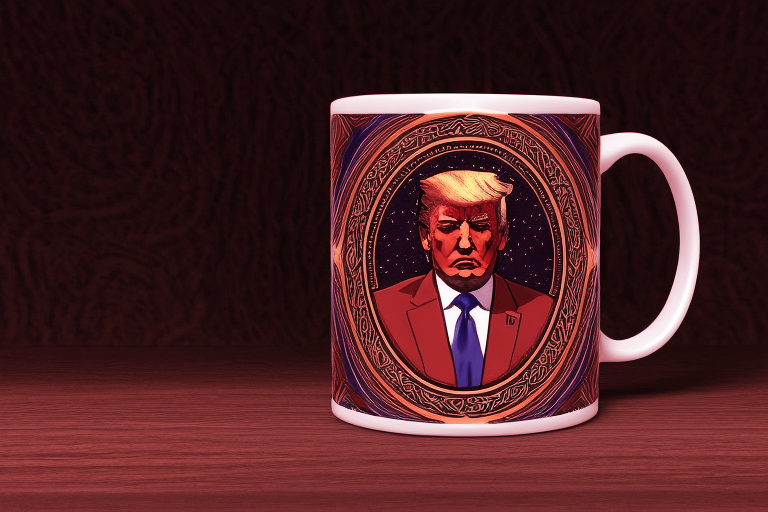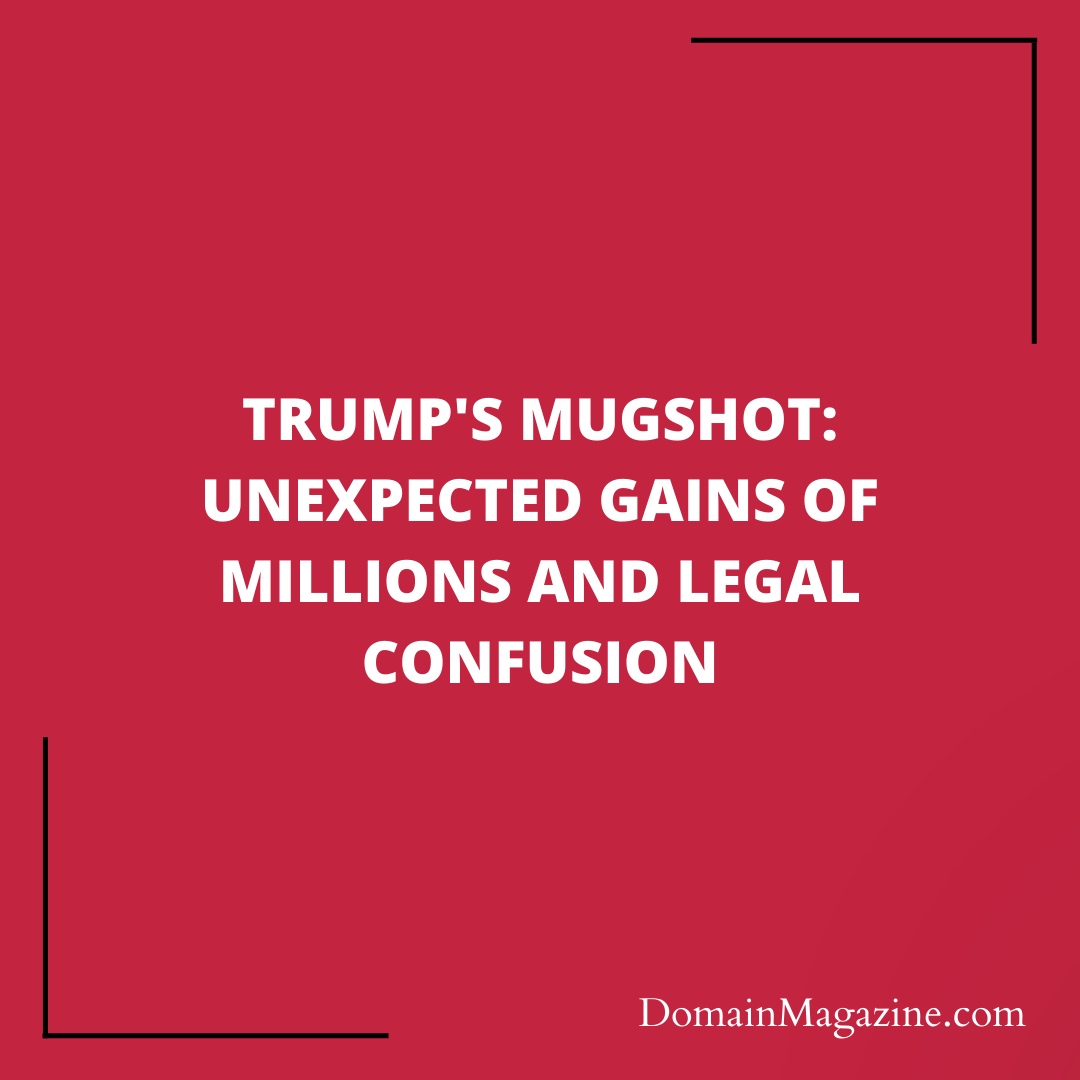In a surprising turn of events, Donald Trump’s recent mugshot, taken by the Fulton County sheriff in Georgia, has become the center of a lucrative merchandising storm. The former president’s campaign wasted no time in slapping his scowling mugshot on a range of products, from t-shirts to coffee mugs. Sales have been brisk, reportedly raising over $7 million within days of the photo’s release. However, beneath this merchandising frenzy lies a complex web of legal questions and a potentially unexpected beneficiary: the Fulton County Sheriff’s Office.

The Copyright Conundrum
At the heart of the controversy is a question of copyright ownership. Generally, the individual or entity that takes a photograph is considered the owner of its copyright. In the realm of federal criminal cases, booking photos are typically regarded as public domain and not subject to copyright. However, when it comes to mugshots taken during state and local criminal proceedings, the situation becomes murkier.
Legal experts, including Betsy Rosenblatt, a professor at Case Western Reserve University School of Law, suggest that the copyright for Trump’s mugshot likely belongs to the Fulton County Sheriff’s Office, which captured the image. Under U.S. copyright law, this would grant the Sheriff’s Office exclusive rights to reproduce, sell, or distribute the mugshot, with certain exceptions like news purposes.
Trump’s Campaign’s Commercial Awareness
The Trump campaign appears acutely aware of the commercial value embedded within Trump’s mugshot. This awareness was evident when the campaign issued a stern warning to anyone attempting to profit from the image without permission. Chris LaCivita, one of Trump’s top advisers, made this clear in a tweet, stating, “If you are a campaign, PAC, scammer and you try raising money off the mugshot of @realDonaldTrump and you have not received prior permission… WE ARE COMING AFTER YOU; you will NOT SCAM DONORS.”
Copyright Precedent: The “Hope” Poster
A comparison can be drawn to the famous “Hope” poster associated with then-candidate Barack Obama. Created by artist Shepard Fairey, the poster used a photograph taken by The Associated Press. Fairey added a red, white, and blue coloring scheme along with the word “hope.” This case led to a legal battle, with the AP alleging that Fairey had generated $400,000 in sales from items featuring the image.
Fairey defended his use of the AP photograph by claiming he had transformed it, constituting fair use and avoiding copyright infringement. After two years of litigation, both parties settled, agreeing to share rights to the image. Notably, Fairey’s alterations to the original image played a pivotal role in the fair use defense.

Lack of Transformation: Trump’s mugshot
In contrast to Fairey’s case, the Trump campaign has not made any efforts to transform the image. They have directly applied the mugshot to various merchandise, from t-shirts to beverage coolers. This absence of transformation could weaken any potential fair use defense. While the Trump campaign clearly values the commercial potential of the mugshot, the lack of alterations to the image may undermine their legal position.
Enforcing Copyright: Unlikely but Possible
The notion of the Fulton County Sheriff’s Office actively enforcing copyright over Trump’s mugshot is a scenario that seems unlikely but is not entirely impossible. If the Sheriff’s Office were to bring a claim of copyright infringement against the Trump campaign and prevail, significant financial implications could ensue.
Under U.S. copyright law, damages resulting from copyright infringement claims can be substantial, potentially encompassing all the proceeds generated from selling the infringing merchandise. For a campaign that has reportedly raised millions of dollars from these sales, such a financial hit could be substantial.
A Potential Windfall for the Sheriff’s Office
Intriguingly, this copyright controversy could have a surprising outcome: a financial windfall for the Fulton County Sheriff’s Office. Recent reports indicate that Sheriff Patrick Labat has been pleading with county commissioners for additional funding to address pressing issues within the county jail.
The potential for the Sheriff’s Office to pursue copyright infringement claims against the Trump campaign may provide a solution to these funding woes. If successful, such claims could bring millions of dollars into the agency, enabling it to tackle the dire conditions within the county jail.
Conclusion
Donald Trump’s mugshot, initially captured during his arraignment in Georgia, has unwittingly become a symbol of a copyright conundrum. The merchandising frenzy initiated by the Trump campaign, featuring the scowling image, has raised significant financial stakes. The legal intricacies surrounding copyright ownership, fair use, and commercial transformation underscore the complexity of this situation.
While it remains unlikely that the Fulton County Sheriff’s Office will actively pursue copyright enforcement, the potential financial implications are noteworthy. The agency, grappling with funding challenges to address critical issues within the county jail, could find an unexpected solution in the form of copyright claims.
In the end, the story of Trump’s mugshot transcends the merchandising mania, delving into the realms of copyright law, fair use, and the potential for a surprising twist in the narrative—an agency in need potentially benefiting from an image that has become emblematic of a former president’s legal entanglements.


Join the Discussion